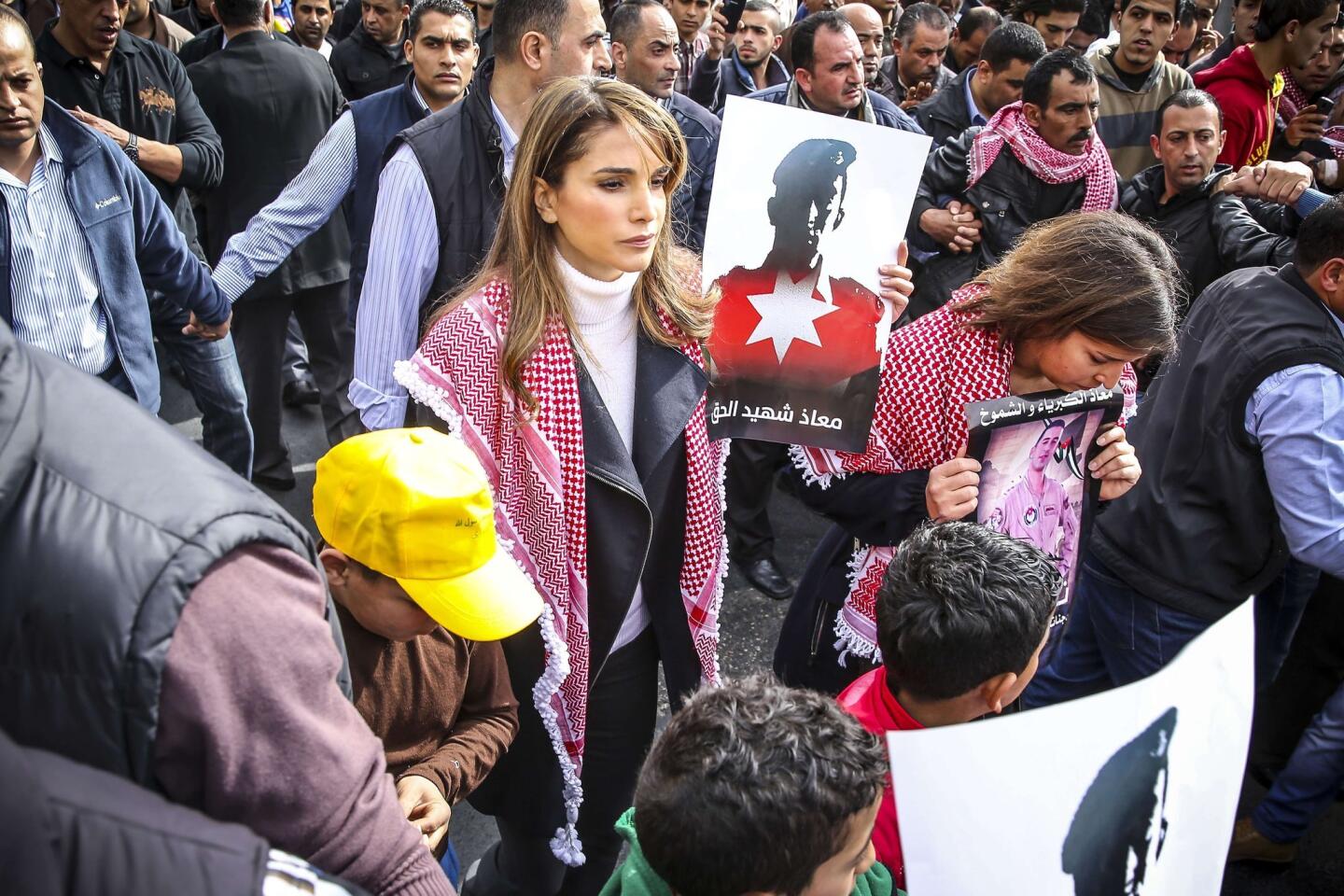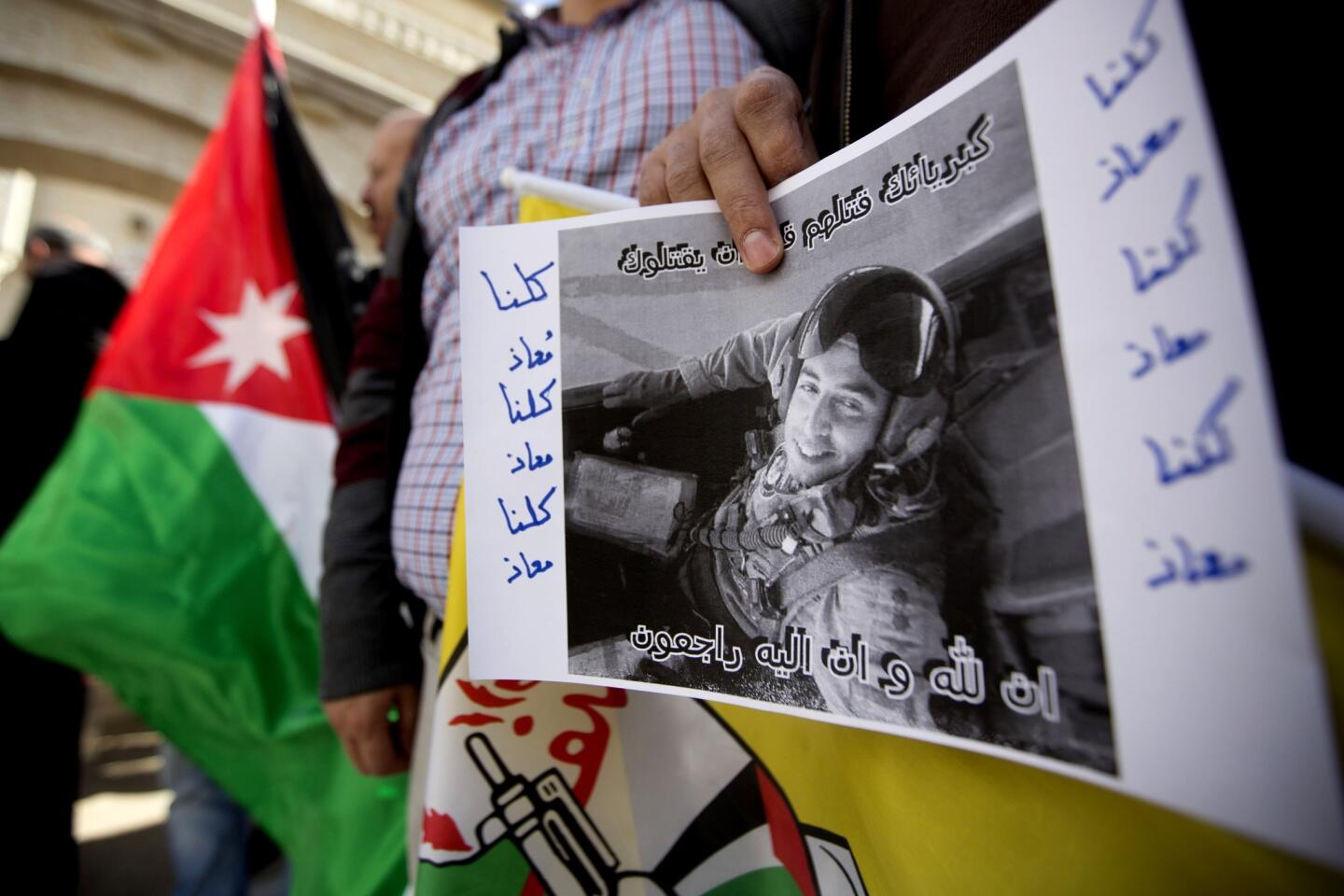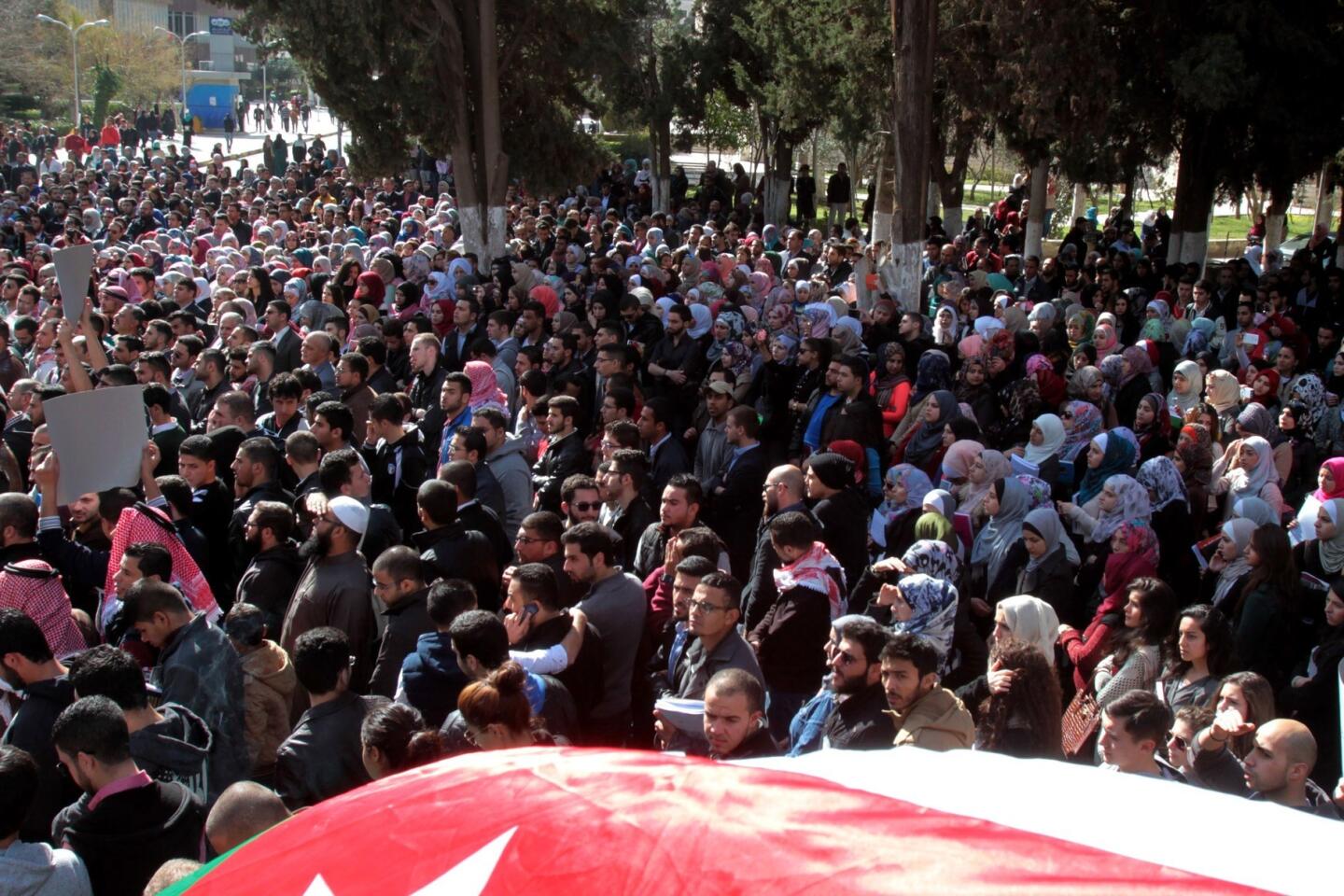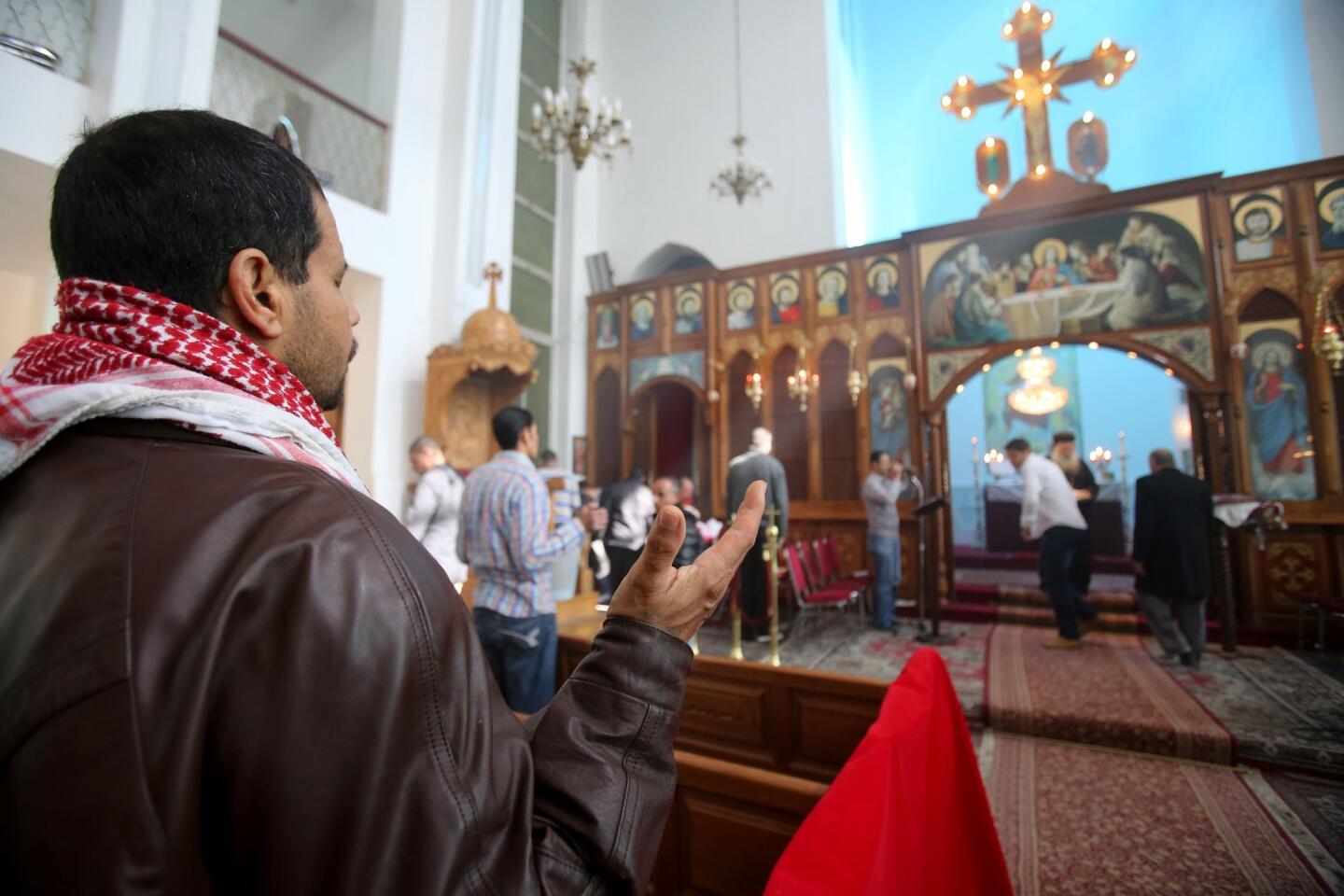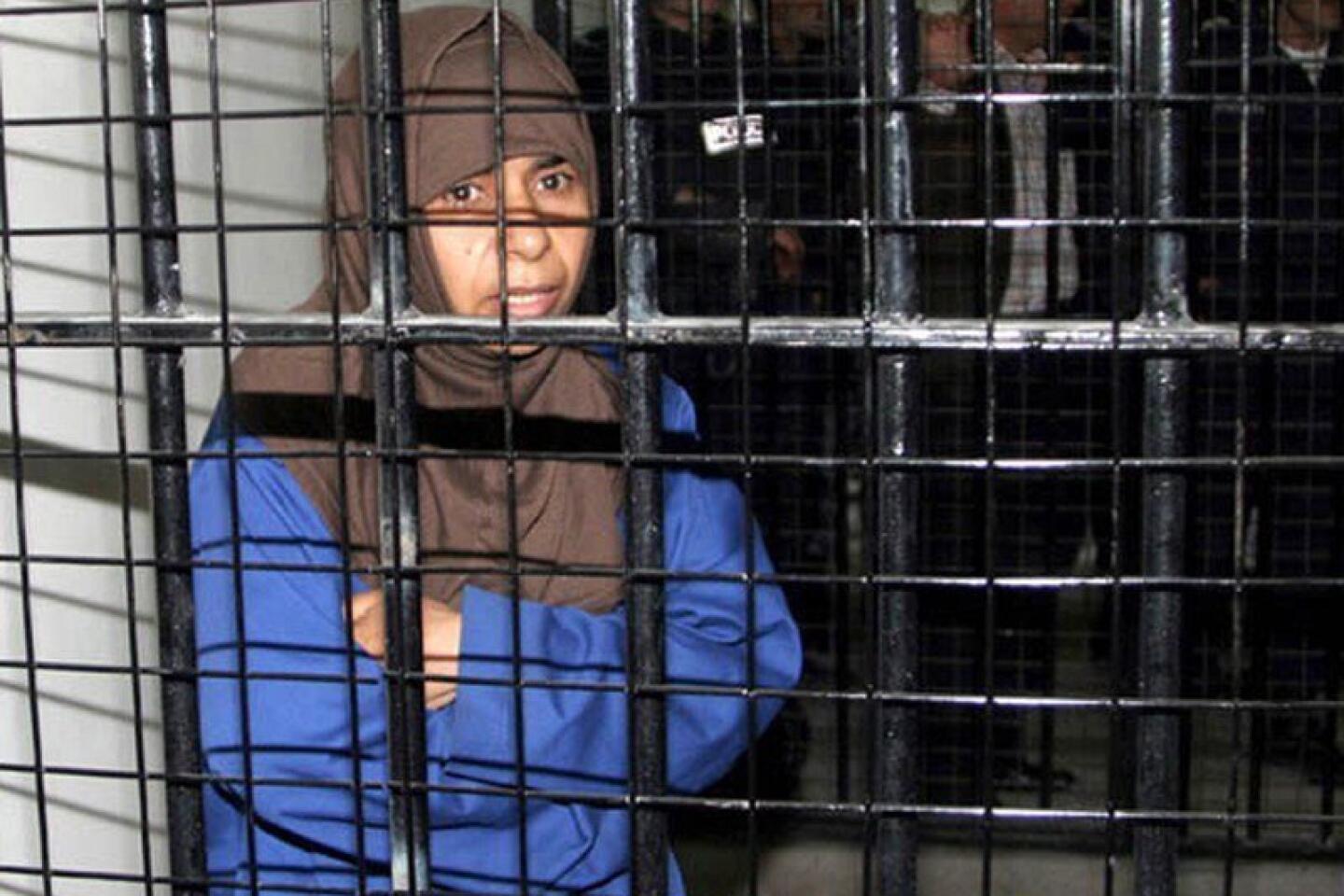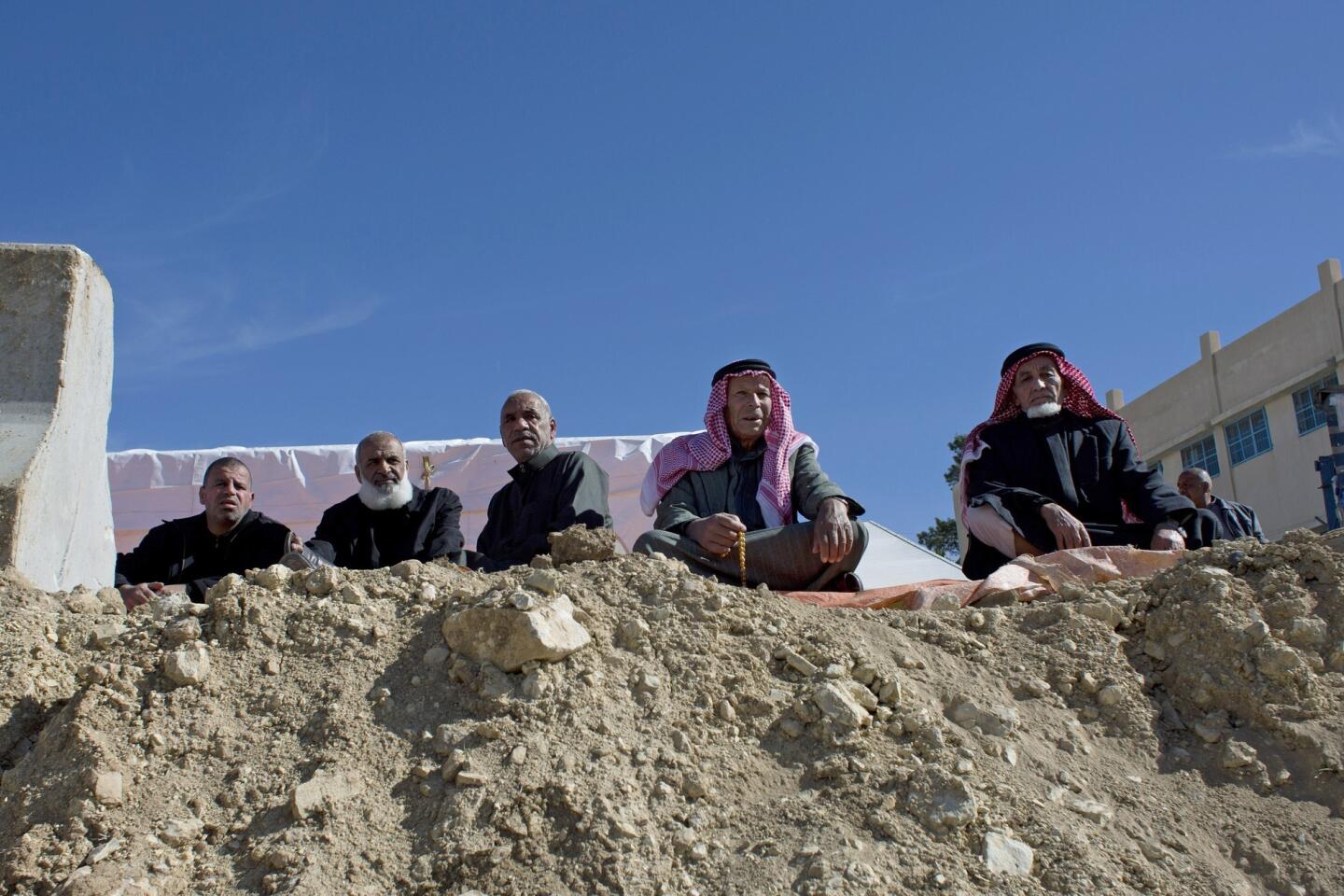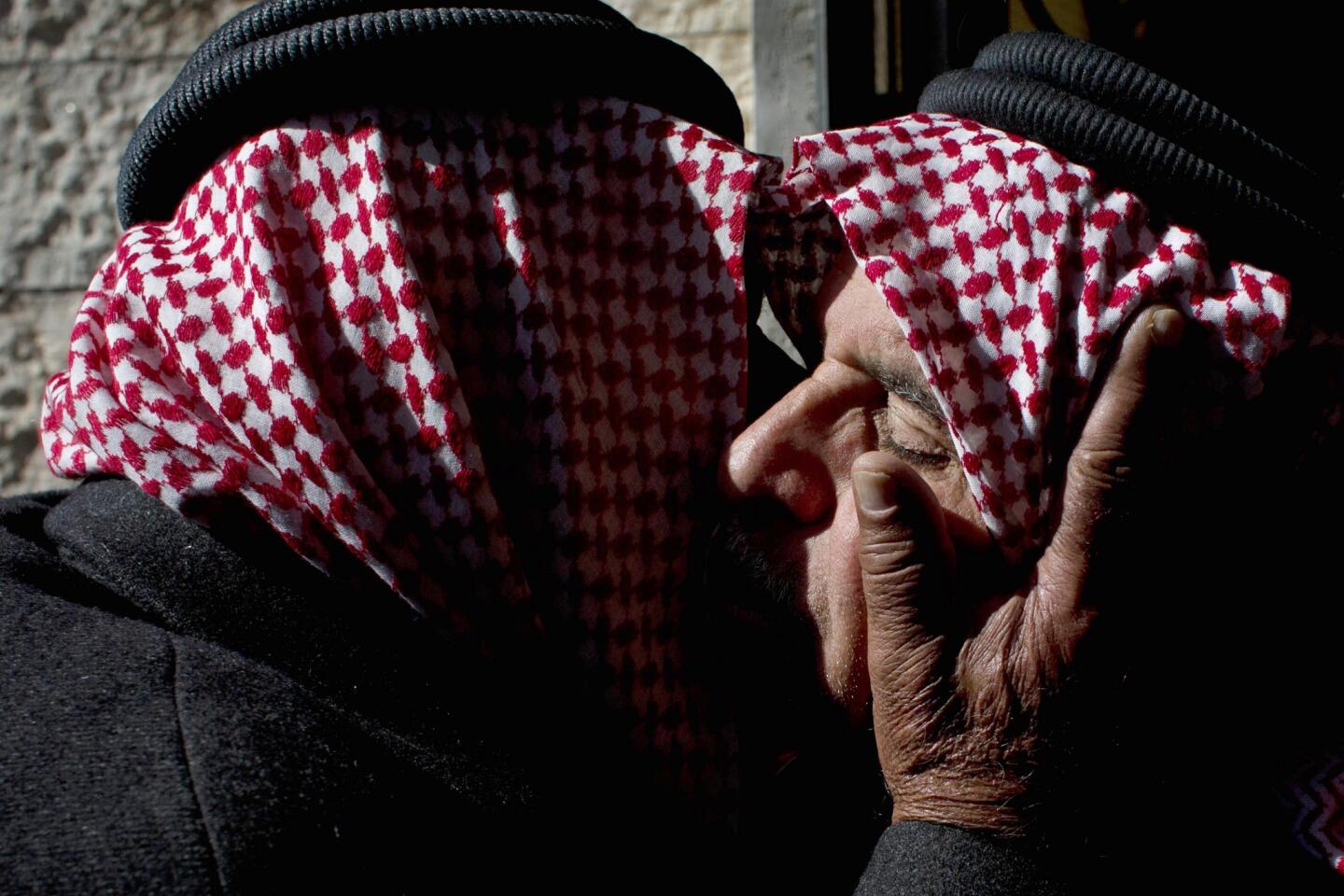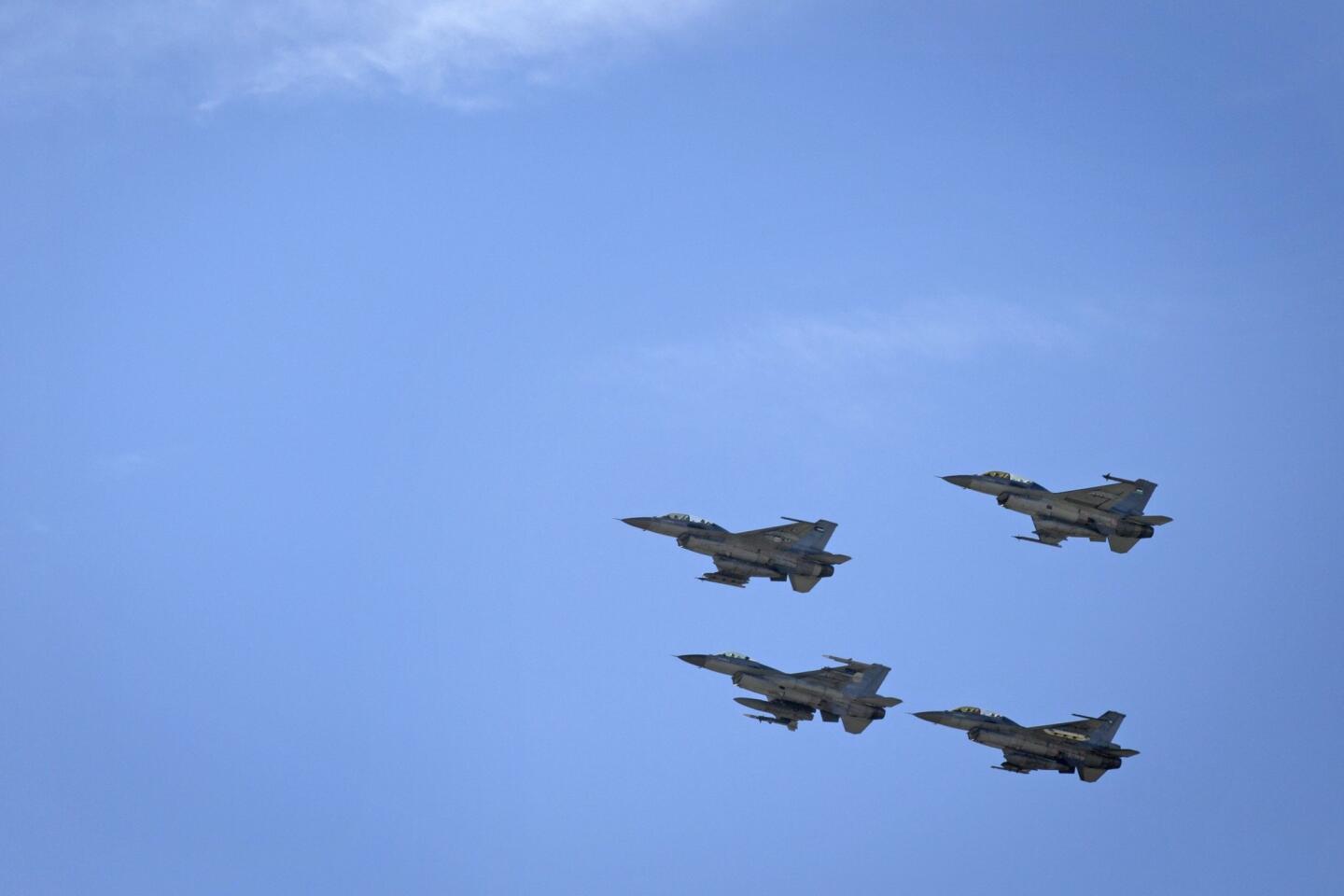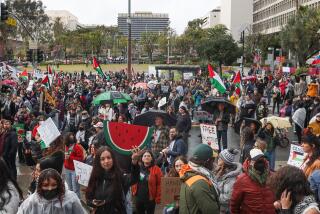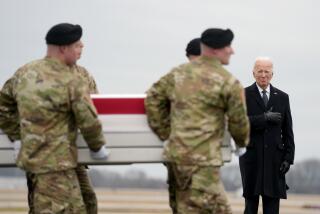Jordanians rally in streets, vowing to fight Islamic State militants
A boisterous pro-government rally brought thousands into the streets of Jordan’s capital Friday as the nation’s leaders vowed an intensified offensive against the militant group Islamic State.
Participants in the rally, held after noon prayers in a main square of downtown Amman, condemned the Islamic State’s gruesome execution of Jordanian pilot Moaz Kasasbeh, who was burned alive. The demonstration highlighted Jordanians’ anger and calls to avenge his death.
“We want to take justice from these terrorists,” said Fahd Khatib, a 19-year-old student who had “Moaz” written on his forehead and a Jordanian flag painted on both cheeks.
“Moaz is the first martyr for Jordan in this fight,” Khatib said. “Other countries, they did nothing, but we will fight.”
The sentiment was widely shared among the protesters, who hoisted large banners and posters declaring Kasasbeh as “The Martyr of Righteousness.” Queen Rania, wife of King Abdullah II, joined the marchers in their path through Amman’s bustling downtown.
Young men shouted fealty to the king, urging him to destroy the Islamic State and promising to support him with their “soul and blood.”
“This is now a Jordanian matter,” said Shadi Abu Ghoneim, an advertising company owner who had traveled from the West Bank to participate in the march.
“It has nothing to do with the coalition,” he insisted, referring to the U.S.-led alliance that has pounded Islamic State positions in Iraq and Syria for months.
The aerial campaign began after the militant group’s lightning takeover of large swaths of territory in Iraq and Syria, two nations that share long borders with Jordan.
Before the pilot’s slaying, many Jordanians had questioned the government’s participation in the U.S.-led coalition. But the death of Kasasbeh, who was captured after his plane went down over Syria in December while flying on a coalition mission, has silenced for now criticism of Jordan’s cooperation.
“If we are asked to enter into a ground war, then we are ready,” said Imad Khawaldeh, donning green camouflage military fatigues as he carried a banner depicting Kasasbeh’s face. “We are all army now.”
Bulos is a special correspondent. Times staff writer Patrick J. McDonnell in Beirut contributed to this report.
Follow McDonnell on Twitter at @mcdneville for news out of the Middle East
More to Read
Start your day right
Sign up for Essential California for news, features and recommendations from the L.A. Times and beyond in your inbox six days a week.
You may occasionally receive promotional content from the Los Angeles Times.
